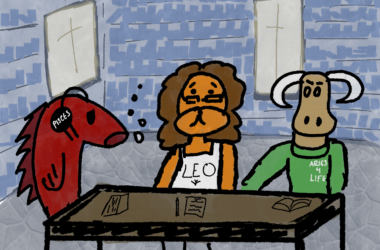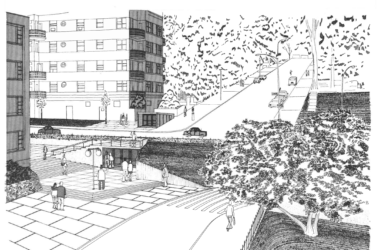Since Ilya Sheyman graduated from McGill in 2006, he’s returned to his home state to run for Congress as a Democrat in Illinois’s 10th district. The district, which encompasses the northern suburbs of Chicago, elected Republican Robert Dold in 2010. An immigrant from the former Soviet Union, the 25-year-old Sheyman just meets the minimum age requirement to run for Congressional office. Below, in an exclusive interview with the Tribune, Sheyman discusses unemployment, small-scale fundraising, and studying American history from abroad.
What motivated you to become involved in politics?
While at McGill I studied history and political science, and when I came back home to Illinois I started right away working at improving the quality of public schools in my home area. So I started organizing in education and spent the last year and a half in healthcare and just realized that my experience in this district, working on the priorities of residents here was exactly what I thought Congress was lacking.
You support several progressive ideals, but could you name a few that are most important to you?
I think the biggest challenge we have right now is that unemployment is through the roof. In my district alone, it’s between eight per cent and 19 per cent unemployment, so in some areas, literally one in five people are unemployed. So I think the biggest change we should make in Washington is to stop focusing on what we can cut and start focusing on putting people back to work. That means that we have to pass the federal jobs bill, we need to invest in good paying jobs, building roads, rebuilding schools and hospitals, and really building a clean energy economy so that we can bring manufacturing back as well. That’s very different from what’s going on in Congress right now, where they’re focused on cutting core social programs.
How would you describe your district’s political orientation?
The last four of the six elections were decided by just a couple of percentage points. That’s a reflection of the fact that this is a pretty well-educated, pretty independent-minded district that really votes for the candidate and not the party. They want to elect the person who really gets what’s going on and who’s trying to improve people’s lives in the district. So our job is to cross that hurdle and slowly turn the district Democratic after 30 years.
What has been your approach to fundraising in this economy?
I think the challenge you face when you start out and you don’t have a lot of friends who make millions of dollars is we had to go out and raise money five, 10, 20 dollars at a time. So our campaign has eleven thousand individual donors—that’s one of the largest donor efforts of any campaign in the country—and we built it at house parties, where we get together at someone’s home every weekend. Twenty to thirty people show up; they ask questions, they find out what issues are on my mind and they share their concerns and they chip in a few dollars.
And we collect money over the Internet, where people are contributing just a couple dollars at a time, but altogether it adds up. And I think that model of fundraising ends up with a lot of people invested in the campaign. If they contribute just a few dollars, they’re also willing to knock on doors and make phone calls and do whatever else it will take for us to win.
Did your time at McGill influence your decision to go into politics?
I majored in political science and U.S. history. When I was there I got a background in … [w]hat [it] was going to take to serve in Congress. I mostly studied U.S. foreign relations, so I really got a handle on what a lot of that looks like and the policy-making that happens in Washington.
While I was there, I spent time interning for a campaign in Vermont for Congressman Peter Welch, so I got to see firsthand what an election looks like, what it takes to run for office and have a lot of the conversations with voters that I’m having now. And while doing that I realized that I really enjoyed listening to voters and figuring out what their priorities are. But it was never part of the plan to run for office until this past year. So it was more of a continuing of following my passion of U.S. history and figuring out how policy is made.
Did Canada’s relatively liberal political environment influence your own politics?
I think it was useful to get a sense of what the political system was like in Quebec and seeing the healthcare system firsthand. However, I think most of my politics were shaped growing up in the 10th district. The reality is that I was at McGill for two and a half years before I graduated. I loved the experience and I got a great education, but I think most of my politically formative years came from moving to the States as Jewish refugee, growing up in the Chicagoland area and seeing how families can succeed through hard work and the support of our community here.
Who was your favourite McGill professor?
I loved Leonard Moore, who taught U.S. history. I think I took five or six of his classes. He painted this picture of U.S. history as being one of progress; it was uneven, but over time, the U.S. kept improving and perfecting itself, internally and externally. At a time when George W. Bush had just been elected for his second term and there was a lot of frustration, anger, and criticism, he just did a great job of putting it into context and showing how the U.S. does move forward and improve because a lot of people put work into making it better.
What’s your favourite thing to do in Montreal?
Going up to Mont Royal on Sundays.
This interview has been condensed and edited.








